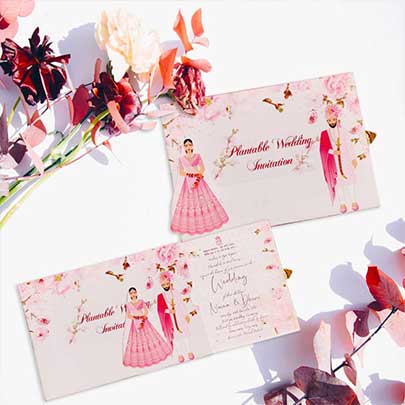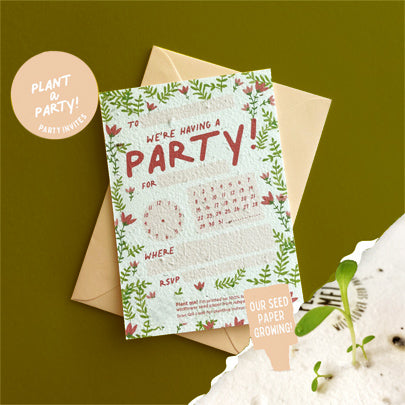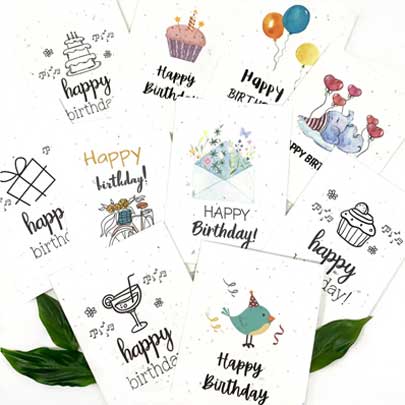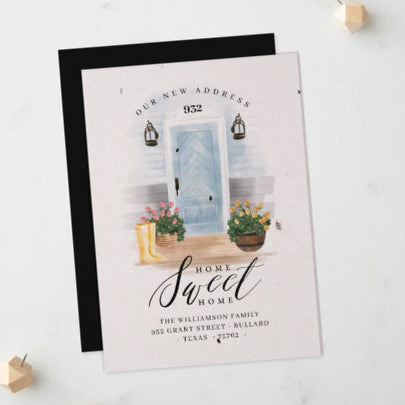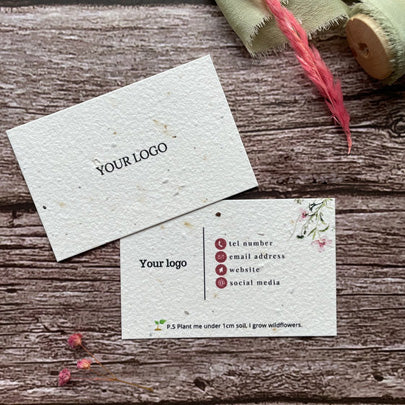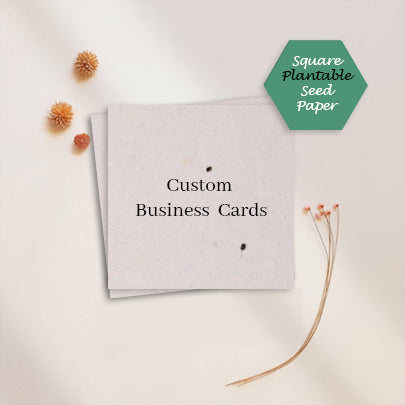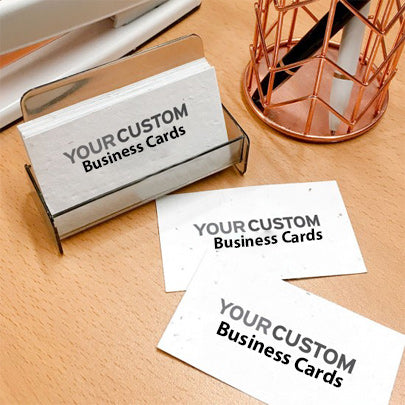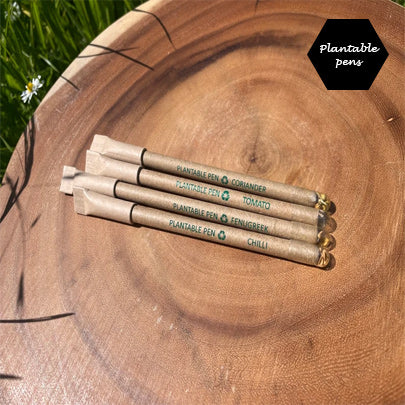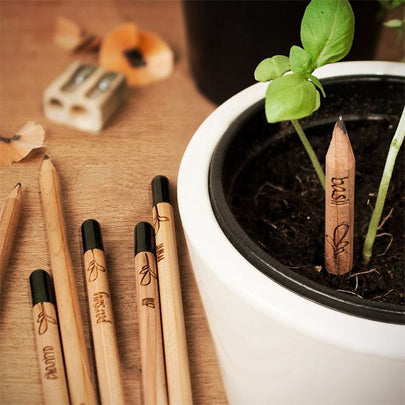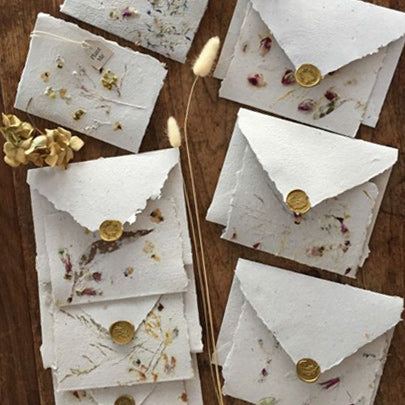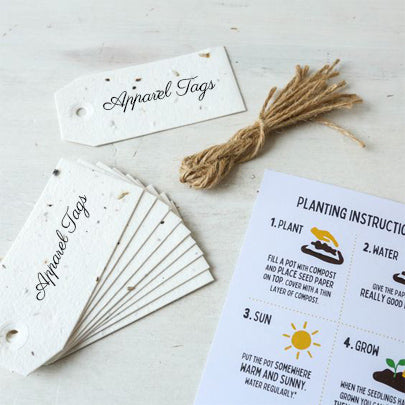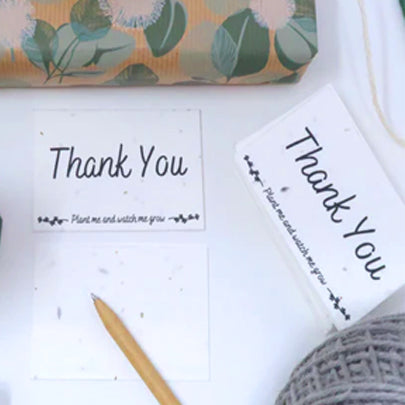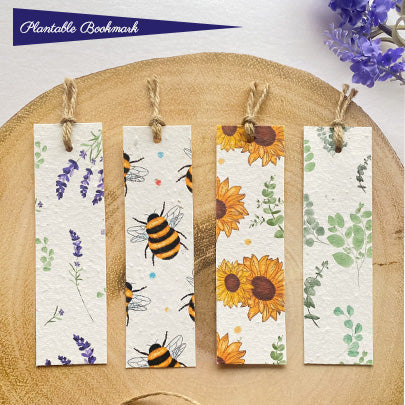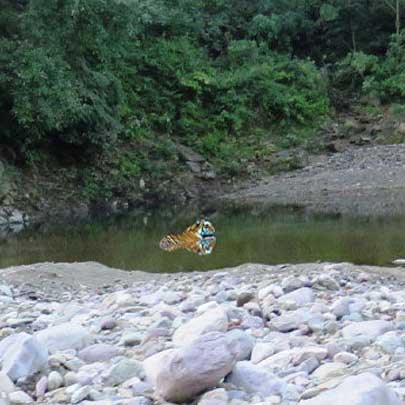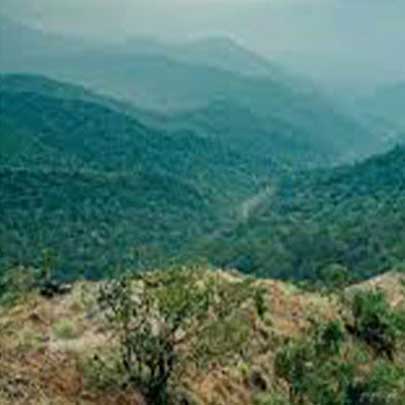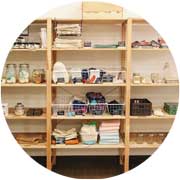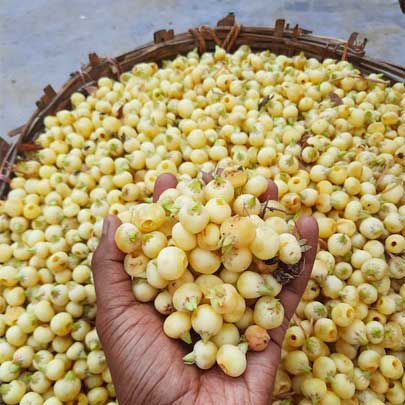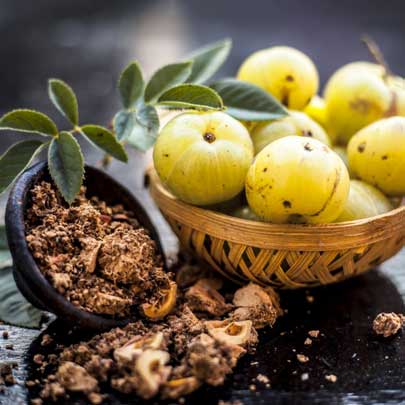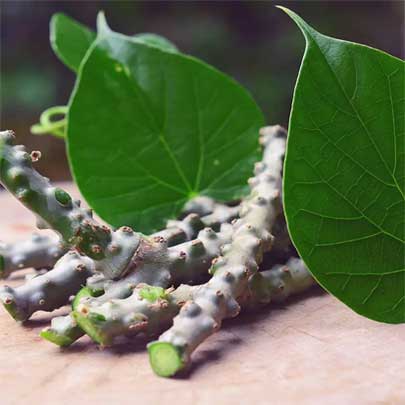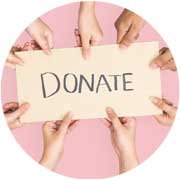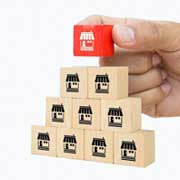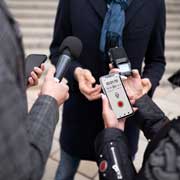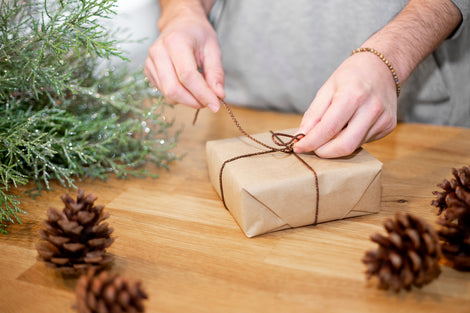The Zero-Waste Business Card: How Your Brand Can Lead The Way
In an era where sustainability is becoming the cornerstone of modern business practices, zero-waste initiatives are no longer optional—they're essential. Among the many eco-friendly trends reshaping industries, zero-waste business cards stand out as a creative and impactful way for brands to showcase their commitment to the planet.
These innovative cards are more than just a networking tool—they symbolize your brand’s values and a step toward a greener future. Here’s how your brand can embrace the zero-waste movement through sustainable business cards.
What Are Zero-Waste Business Cards?
Zero-waste business cards are crafted with minimal environmental impact, often made from recycled materials, seed paper or biodegradable substances. Unlike traditional cards, which may end up as waste, these cards can be:
- Reused or recycled after their purpose is fulfilled.
- Planted (if made from seed paper) to grow into plants, leaving no waste behind.
- Composted to enrich the soil, ensuring a circular lifecycle.

Why Your Brand Needs Zero-Waste Business Cards
-
Make a Memorable Impression:
Zero-waste business cards are unique, sparking curiosity and conversation. A card that can grow into flowers or vegetables leaves a lasting impression on clients and partners. -
Showcase Your Commitment to Sustainability:
By choosing eco-friendly materials, you demonstrate your brand’s dedication to environmental responsibility, resonating with eco-conscious customers.
-
Align with Consumer Expectations:
Modern consumers prioritize sustainability. Offering zero-waste business cards aligns with their values and positions your brand as forward-thinking. -
Reduce Environmental Impact:
Traditional paper production is resource-intensive, often contributing to deforestation and waste. Zero-waste cards minimize these impacts, contributing to a healthier planet.
How to Create Zero-Waste Business Cards
-
Choose Sustainable Materials:
Opt for materials like:- Seed Paper: Embedded with seeds that can grow into plants when planted.
- Recycled Cardstock: Made from post-consumer waste, reducing the need for new resources.
- Bamboo or Cork: Durable, renewable and biodegradable options.
-
Simplify the Design:
Use minimalist designs with eco-friendly inks like soy-based or water-based options, which are less environmentally harmful.
-
Include Digital Integration:
Add QR codes or NFC technology to reduce the need for excessive printing, directing recipients to your website or portfolio digitally.
-
Partner with Eco-Friendly Printers:
Work with printing companies specializing in sustainable practices, including energy-efficient production and waste management.
Benefits of Zero-Waste Business Cards for Your Brand
-
Boost Brand Credibility:
A zero-waste approach signals innovation and responsibility, building trust with clients and collaborators. -
Differentiate Your Brand:
In competitive markets, a distinctive and eco-conscious business card can set you apart from the crowd. -
Contribute to a Circular Economy:
Zero-waste cards align with the principles of a circular economy, reducing waste and encouraging resource reuse. -
Enhance Brand Loyalty:
Consumers are more likely to support brands that actively take steps to reduce their environmental impact.
Success Stories: Brands Leading the Zero-Waste Revolution
- Sustainable Startups: Startups in tech and wellness industries are adopting seed paper business cards, emphasizing their eco-conscious ethos.
- Eco-Friendly Retailers: Many retailers are using recycled or biodegradable cards to reflect their green commitments.
- Creative Agencies: Design-focused businesses are leveraging zero-waste cards to showcase their creativity and responsibility.
Take the First Step Toward Zero-Waste Branding
Adopting zero-waste business cards is a small but significant step in positioning your brand as a leader in sustainability. By doing so, you’re not just exchanging contact information—you’re sharing your brand’s values and vision for a greener future.
Start leading the way today—because every small step toward sustainability makes a big difference. 🌱





